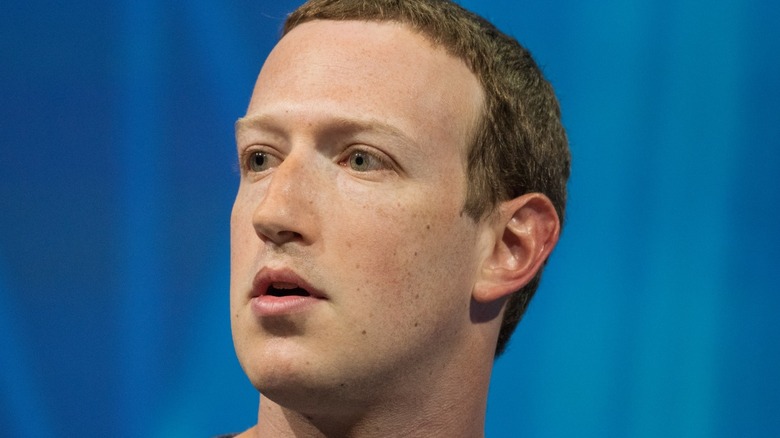Metaverse Hilariously Loses Word Of The Year
Every year, various dictionary organizations publish their "words of the year," usually meaning a word that rose in prominence, usage, or significance during the year. The Oxford University Press, publisher of the Oxford Dictionary, has just released the results for its Word of the Year campaign, and it's made the metaverse look like a joke.
In the past, The Oxford University Press decided what the Word of the Year would be by using statistical analysis and in-depth research to fuel an evidence-based approach (via The Oxford University Press). The result of Oxford's evidence-based approach put the word "vax" as Oxford's word of the year for 2021, with the year before that being something different thanks to the pandemic and work from home. The search for Oxford's 2020's Word of the Year culminated in a titillating report about language usage across the globe, highlighting interesting trends and themes among English speakers, instead of simply focusing on one word for the year.
For 2022, Oxford decided to mix up the Word of the Year campaign once again. Instead of simply electing a word based on frequency, relevance, and prominence, Oxford selected three finalists for Word of the Year, and opened it to a public vote.
'Goblin mode' beats out Metaverse and #IStandWith
Despite Mark Zuckerberg's best efforts to make the metaverse a reality, and the word outperforming its competitors in terms of usage statistics, it still managed to lose to "goblin mode," which also beat out "#IStandWith." "Goblin mode" is a term which Oxford defines as slang to express "unapologetically self-indulgent, lazy, slovenly, or greedy behavior" that flies in the face of social norms. Attending Zoom meetings in a pair of stained sweatpants, with your camera off, while watching Netflix on the side would be the embodiment of someone in goblin mode. Goblin mode is perhaps a response to trying times making people reconsider what level of comfort they're willing to sacrifice to fit in socially.
The other contender, #IStandWith, has been around on social media since 2009, according to Oxford's Word of the Year announcement, but rose in popularity in 2022 as a response to the invasion of Ukraine. Before 2022, the hashtag was also used to show support for a number of things; from the Isreali-Palestine crisis to the Johnny Depp v. Amber Heard court trial.
At the end of the day, the Word of the Year campaign by Oxford is meant to represent how people relate to and use language in their daily lives. As such, it seems somewhat fitting that self-indulgence win out over the machinations of a social media billionaire and a metaverse that has thus far failed to capture the imagination of the general public.

